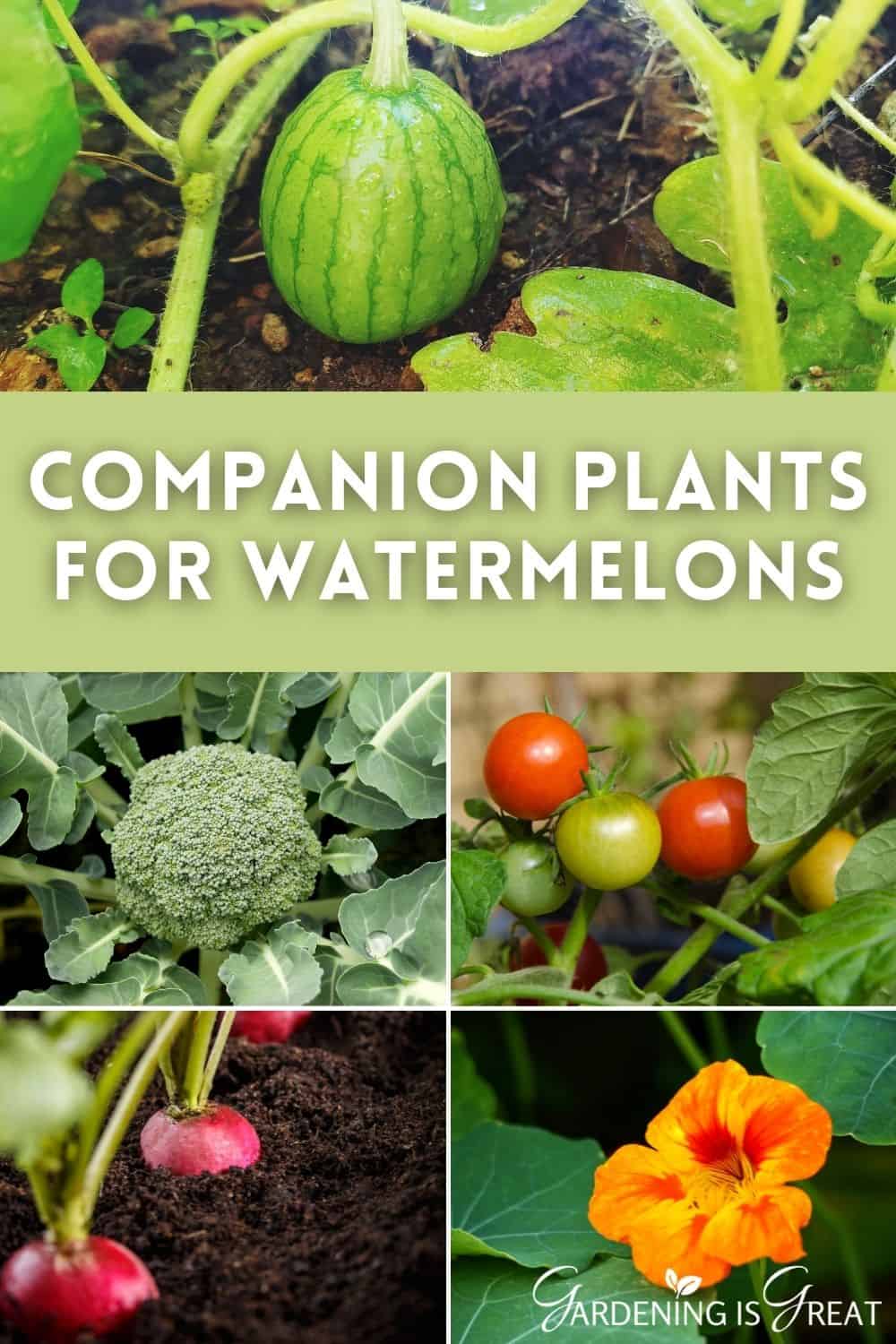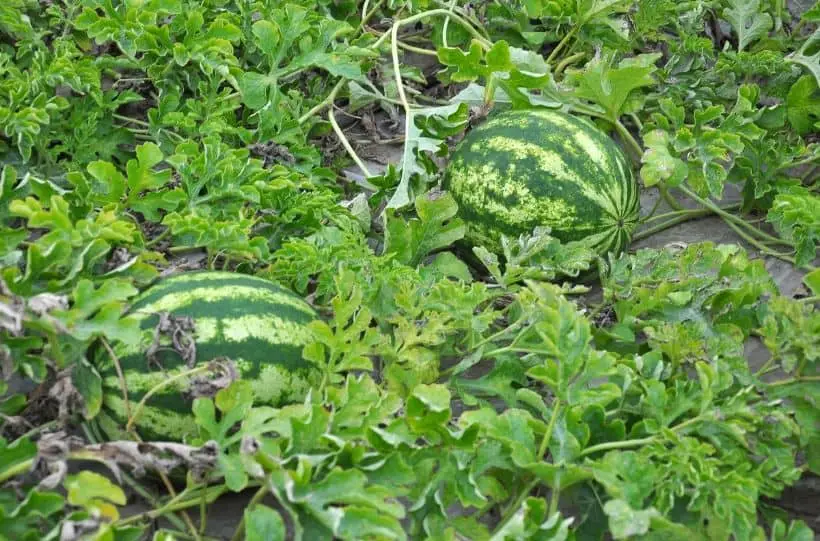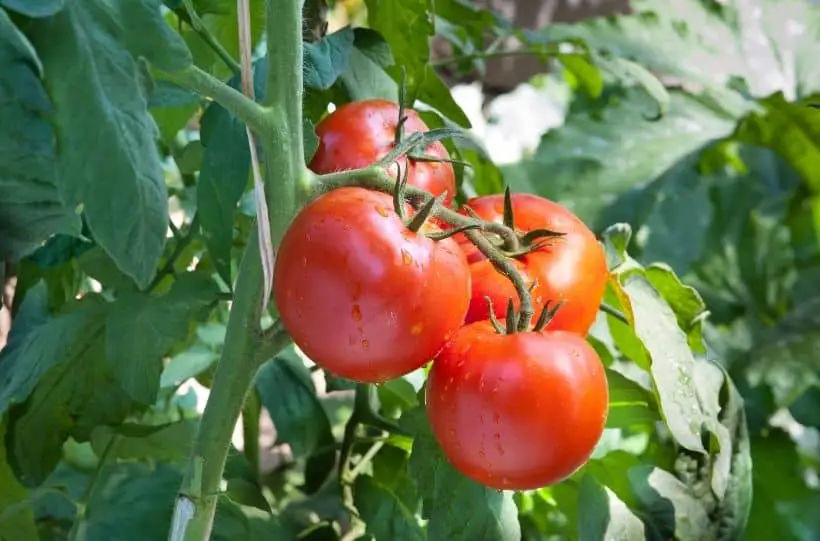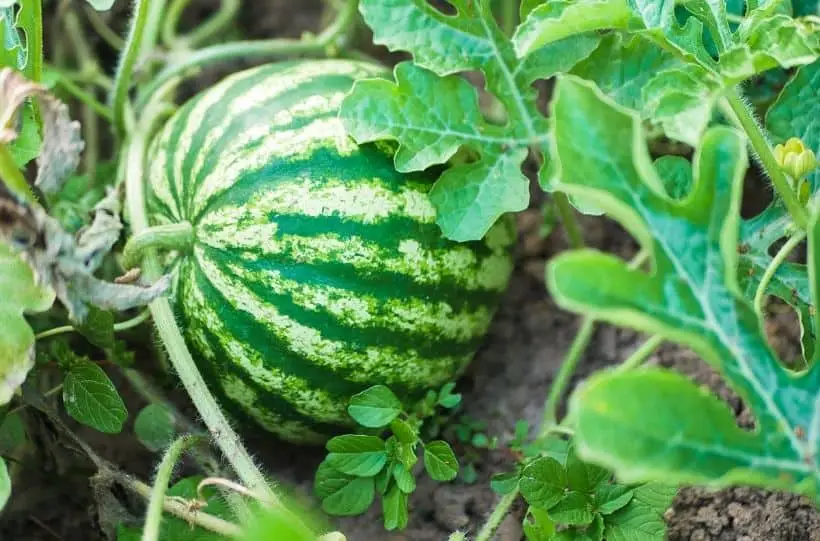Best Companion Plants for Watermelons
Watermelon is an excellent addition to any garden. This summer fruit is a classic part of the season, and the perfect healthy treat on a scalding hot summer day.
Sadly watermelons do take up a large chunk of the garden, leading to people leaving them out of their garden plans.
The good news is that watermelons companion plant well, and there is no reason to avoid growing watermelons in your garden when you can simply plant with one of these great companion plants for watermelons.

What is Companion Planting?
Companion planting is the art of planting things together to help create a bit of biodiversity in your garden. This can help your plants thrive and grow better than ever, attract pollinators, and repel pests while helping to prevent the spread of disease in your garden.
By planting a variety in your garden together, you can help create the perfect environment for growing plants.
This is a great way to help your garden grow, but not all plants are compatible, so you need to plan well to companion plant what does work and avoid planting things that can change their companions’ flavor or end up competing for the same nutrients with heavy feeders.
Watermelons make a great companion plant that can act as a living mulch for your vegetable garden.
What Can You Companion Plant With Watermelons?
Watermelons make amazing companion plants due to their ability to act as a living mulch for your taller plants. When planting watermelons, look for an area where the vines will have room to spread without snuffing out smaller plants.

Companion planting things that help protect your watermelons and attract beneficial insects and pollinators is a great way to help get a better harvest from your watermelons.
Garlic
Garlic is a great plant to use for helping to repel unwanted insects from your garden. Garlic can thrive in a section of your watermelon bed with no issues.
Plant your watermelon at least 2-3 feet between these plants and let the vines go wild. Your garlic will peak up between any vines that grow near, and the watermelon vines will help to shade the cold-loving garlic bulbs from the hot summer sun while the garlic works to repel aphids.
Mint
Mint and watermelon go great on the table, but they work just as well together in the garden. Mint is best grown as a reduction for your watermelon bed, but despite commonly growing low, mint is hard to push around and snuff out. Mint will spread out and work its way between your melon vines and continue to thrive all season long.
Dill
Dill is a great plant for helping to protect your watermelon from aphids. Dill blooms are great for attracting lacewings and other aphid munching insects that will help keep these pesky insects from eating your watermelon.
Corn
Corn is an excellent repellent plant for cucumber beetles, and due to their tall stature, corn stalks are well out of the way of watermelon vines. Watermelons make an excellent living mulch for your corn.
Radish
Radishes are great for repelling cucumber beetles that love to feast on watermelons. You can use these as a step crop along the outer edges of your garden beds where you’re growing watermelons.
These typically will harvest long before the vines of your watermelons can work their way over to the edges and snuff them out.
Broccoli
Broccoli doesn’t companion plant well but can easily be grown near your watermelons, where they will have time to grow tall before the watermelon vines reach them. The watermelon vines will settle around the broccoli stalks, acting as a living mulch, while the broccoli will help to repel cucumber beetles that love to snack on your watermelons.
Nasturtiums
Nasturtiums love to vine upwards and will be happy growing along a trellis or in a hanging basket over your watermelons, where the brightly colored flowers will help to attract pollinators that help your watermelons get fertilized so they can produce better.
Green beans
Green beans in both pole and bush varieties make a great companion plant for watermelons.
Pole beans will grow right up a trellis on the north side of your watermelon patch or happily grow up stalks of corn where they are out of the way of your watermelon vines.
Bush beans grow a compact bush that will fit in between your watermelon vines and grow very fast, so they will quickly get big enough to avoid being snuffed out by your watermelon vines.
Green beans are nitrogen-fixing and will help keep your watermelons healthy.
Tomatoes
Tomatoes get along very well with watermelons. Both have similar needs for growing, including plenty of sun, a lot of water, and nutrition-packed soil.

If you chose to grow these two together, be sure to till in extra compost before planting and use a quality fertilizer regularly through the growing season.
What Should You Not Companion Plant With Watermelons?
It would be best if you avoided companion planting zucchini or cucumbers with your watermelons.
If possible, put these as far from your watermelons as you can get. These plants will cross-pollinate. The end result is an odd combination of the two that usually ends up being nothing but a big disappointment with its lack of flavor.
Many gardeners have cut into what they thought would be a big sweet ripe watermelon only to discover the inside is more like a giant flavorless cucumber.
Pumpkins and winter squash should not be companion planted with watermelons. These plants take up a lot of ground space with their large vining systems. When planted together, they will compete for space, preventing either plant from reaching its full potential.
Avoid planting watermelons with herbs and plants that tend to stay low to the ground. The large vines of watermelon plants tend to block out the sun and will snuff out any young seedlings and plants that are naturally smaller in stature. Instead, use your watermelons as a living mulch around taller plants.

With these nine good companions, you should now be armed with ideas of what to plant with your watermelon this season.
And check out these articles for more information about growing fruit in your home garden

